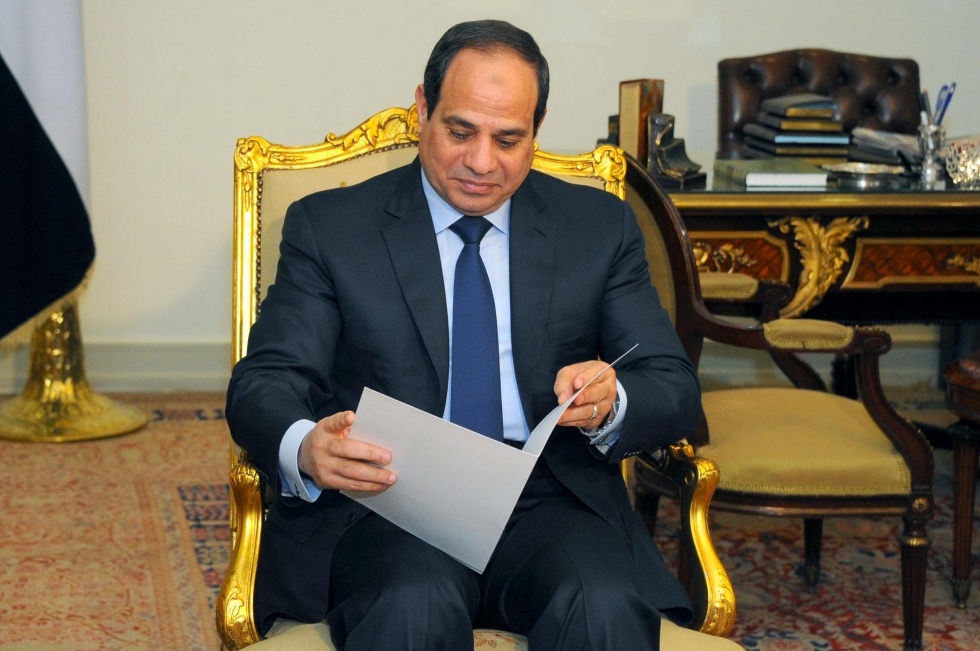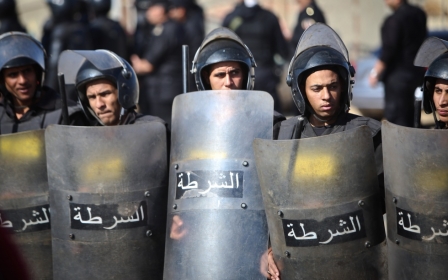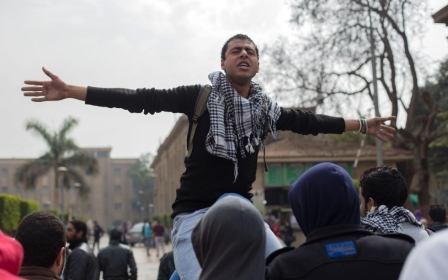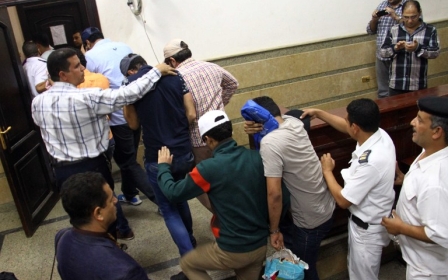Sisi: Egypt never made 'offensive' statements about Turkey or Qatar

Egyptian President Abdel Fattah al-Sisi said on Saturday that his country has never made “offensive” statements against Turkey or Qatar.
In an interview with the London-based Asharq al-Awsat, President Sisi said: "Egypt has never made any official statements that were offensive to Qatar or Turkey."
Egyptian relations with both Turkey and Qatar soured following the popularly backed military coup against Muslim Brotherhood leader Mohamed Morsi, Egypt's first freely elected president, in June 2013.
In November 2013, Turkey and Egypt reciprocally downgraded their diplomatic relations to the level of charge d'affaires and recalled their ambassadors from both capitals.
Egypt has accused Qatar of interfering in its affairs by supporting the now banned Muslim Brotherhood and by giving refuge to a number of wanted leaders from the group following Morsi's overthrow.
Cairo has been especially irked by Doha's view of political developments in Egypt, and what it describes as biased news coverage by the Qatari Al-Jazeera Mubasher Misr channel – devoted to covering Egypt news – which was later closed.
An initiative led by Saudi Arabia, under the late King Abdullah, has sought to foster a rapprochement between Doha and Cairo, but relations remain rocky.
Qatar condemned recent airstrikes by Egypt in Libya – carried out in response to the apparent IS beheading of 21 Egyptian Christians. Egypt’s delegate to the Arab League responded to the criticism by accusing Qatar of supporting “terrorism”.
In his interview published on Saturday Sisi said that his country is committed to the "Riyadh agreement" to improve relations with Qatar.
"We are still committed to the Riyadh agreement, in appreciation of Saudi Arabia and its role," he told the newspaper.
The Riyadh agreement was struck in April 2014 and was aimed at ending a dispute between Gulf Cooperation Council (GCC) members. The six states agreed not to undermine “the interests, security and stability” of each other, according to a statement issued at the time.
The agreement came after a standoff between Saudi Arabia, Bahrain and the UAE with Qatar over the latter’s support for the Muslim Brotherhood.
Sisi will travel to Saudi Arabia on Sunday for talks with King Salman bin Abdulaziz al-Saud, who ascended to the throne in January following the death of his brother Abdullah.
"Relations between Egypt and Saudi Arabia are strategic and a pillar for security and stability in the Middle East region," the Egyptian president said.
Speculation has mounted of tension between Riyadh and Cairo in recent weeks, following the release of leaked recordings that allegedly revealed Sisi insulting the super-rich Gulf states.
The former army chief turned president called the leaders of Saudi Arabia, Kuwait, Bahrain and the UAE – all significant financial donors to his presidency – in response to the leaks and was, according to official statements, reassured of continuing support from the Gulf states.
Muslim Brotherhood
However, persistent reports that King Salman is considering a change in approach to dealing with the Muslim Brotherhood – labelled a terrorist organisation in Saudi Arabia last year – has led to rumours the new monarch may realign his regional foreign policy and reduce repression of the group.
Sisi, who has led a brutal crackdown against Brotherhood members in Egypt, seems unlikely to support such a move, although he made seemingly conciliatory remarks about the group in his interview published on Saturday.
When asked whether it would be possible for the Muslim Brotherhood to return to politics, al-Sisi said that the issue is "up to the Egyptian people."
"Whatever the people approve I will implement it right away," he said.
Thousands of Brotherhood members and supporters have been jailed and hundreds killed since the army ousting of Morsi, and the group was designated a terrorist organisation in late 2013.
With strife engulfing much of the Middle East and North Africa, Sisi warned that the region is at its “weakest point” and is in “real danger”.
"If Egypt collapses, the region will be at a war for at least 50 years," he said.
Sisi renewed his call for forming a joint Arab force to combat the Islamic State (IS) group, adding that Egypt has been in contact with "brotherly" nations regarding the matter.
"In our view, the first step towards destroying Daesh is through Arab unity and full cooperation in all fields," he said, using the Arabic acronym for the group that has overrun swathes of Iraq and Syria.
New MEE newsletter: Jerusalem Dispatch
Sign up to get the latest insights and analysis on Israel-Palestine, alongside Turkey Unpacked and other MEE newsletters
Middle East Eye delivers independent and unrivalled coverage and analysis of the Middle East, North Africa and beyond. To learn more about republishing this content and the associated fees, please fill out this form. More about MEE can be found here.




